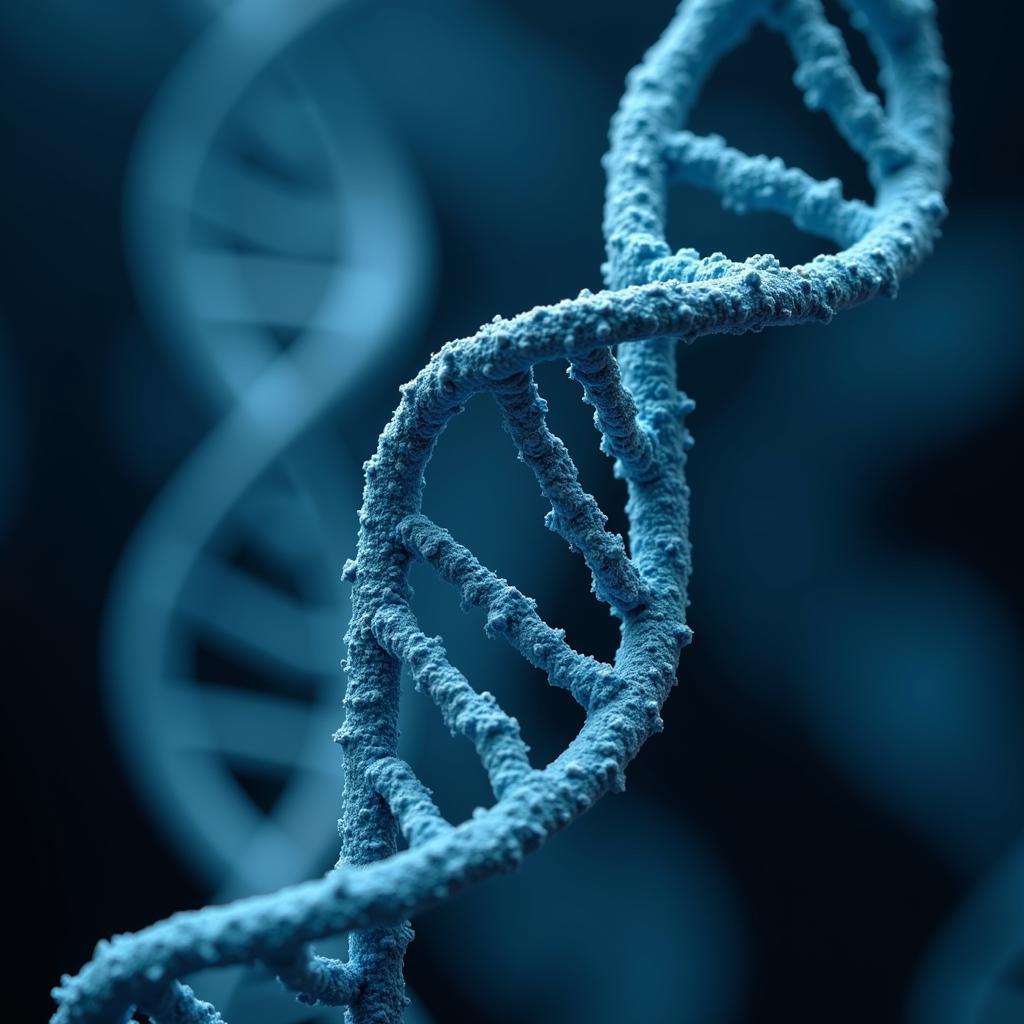Unraveling the Tapestry of African DNA Haplogroups
The human story is a tale etched in our genes, a narrative woven into the very fabric of our DNA. When we delve into the realm of African Dna Haplogroups, we embark on a captivating journey through time, tracing the ancient migratory paths and ancestral lineages that have shaped the rich tapestry of humanity.
Deciphering the Language of DNA Haplogroups
Before we delve into the specifics of African DNA haplogroups, let’s first unravel the meaning of this intriguing term. In essence, a haplogroup can be envisioned as a branch on the expansive tree of human evolution. It represents a distinct genetic group of individuals who share a common ancestor through their maternal or paternal lineage.
These haplogroups are classified based on specific mutations or variations within their DNA, passed down from generation to generation. By analyzing these genetic markers, scientists can trace the migratory patterns of our ancestors, piecing together the puzzle of human history.
 DNA Double Helix Structure
DNA Double Helix Structure
African DNA Haplogroups: A Window into Our Shared Ancestry
Africa, the cradle of humankind, holds the key to understanding the origins and diversity of our species. It is within the continent’s vast landscapes that the earliest human populations emerged and began their dispersal across the globe.
African DNA haplogroups are incredibly diverse, reflecting the deep genetic roots and long history of human presence in Africa. These haplogroups provide a unique lens through which we can explore the ancient migrations, cultural exchanges, and evolutionary forces that have shaped African populations over millennia.
Major African DNA Haplogroups and Their Significance
Several major African DNA haplogroups have been identified, each with its own fascinating story to tell:
- L0: Considered the oldest known haplogroup, L0 originated in Africa over 150,000 years ago. It is primarily found in populations in Southern and Eastern Africa, representing the ancestral lineage from which all other haplogroups descended.
- L1: Emerging from L0, this haplogroup is found throughout Africa, with higher concentrations in Central and Western regions. It played a pivotal role in the peopling of the African continent.
- L2: This widespread haplogroup is particularly prevalent in West Africa and is associated with the Bantu expansion, a significant migration event that spread Bantu languages and cultures across much of sub-Saharan Africa.
- L3: Found in both Africa and parts of the Middle East, this haplogroup is significant as it gave rise to haplogroup M and N, which are associated with migrations out of Africa.
Uncovering Personal Stories Through DNA Testing
In recent years, advancements in DNA testing technology have made it possible for individuals to trace their own ancestral roots with remarkable accuracy. By analyzing specific genetic markers, these tests can provide insights into a person’s haplogroup affiliations, revealing the migratory paths and ancient origins of their ancestors.
For individuals of African descent, both within the continent and in the diaspora, DNA testing can offer a profound connection to their heritage. It can shed light on the diverse ethnic groups and geographic regions that have contributed to their unique genetic makeup, uncovering lost family connections and forgotten historical narratives.
The Enduring Legacy of African DNA Haplogroups
The study of African DNA haplogroups is not merely an academic pursuit; it has profound implications for understanding human history, health, and identity. By unraveling the complexities of our shared genetic heritage, we gain a deeper appreciation for the interconnectedness of humanity and the rich tapestry of human diversity.
As we continue to explore the mysteries encoded within our DNA, we can anticipate even more groundbreaking discoveries that will further illuminate the story of our species, revealing the profound impact of African DNA haplogroups on the human journey.
 African Family Celebrating Heritage
African Family Celebrating Heritage
FAQ: Delving Deeper into African DNA Haplogroups
1. What can my African DNA haplogroup tell me about my ancestry?
Your African DNA haplogroup provides valuable clues about your maternal or paternal lineage, tracing its origins back thousands of years. It can reveal the ancient migratory paths of your ancestors, connecting you to specific regions and ethnic groups within Africa.
2. How can I find out my African DNA haplogroup?
Several DNA testing companies offer ancestry tests that analyze your DNA to determine your haplogroup affiliations. These tests typically involve a simple cheek swab and provide detailed reports on your ancestral origins.
3. Are African DNA haplogroups linked to specific traits or health conditions?
While haplogroups primarily reflect ancestral migration patterns, some studies suggest potential associations between certain haplogroups and specific health conditions or traits. However, more research is needed to establish definitive links.
4. How does the diversity of African DNA haplogroups compare to other populations?
African populations exhibit the highest levels of genetic diversity globally, reflecting their long history and the continent’s role as the cradle of humankind. This diversity is reflected in the wide array of African DNA haplogroups.
5. What is the significance of studying African DNA haplogroups for understanding human evolution?
African DNA haplogroups provide crucial insights into the origins of our species, the early migrations out of Africa, and the subsequent diversification of human populations across the globe.
6. Can DNA testing help me connect with living relatives who share my African DNA haplogroup?
Yes, many DNA testing companies offer features that allow you to connect with individuals in their database who share similar DNA segments, potentially identifying distant cousins or other relatives with whom you share a common ancestor.
7. What are some resources for learning more about African DNA haplogroups?
Reputable online databases, scientific journals, and genetic genealogy organizations can provide a wealth of information on African DNA haplogroups, their distribution, and their significance in understanding human history.
Do you have more questions?
Contact our 24/7 customer support team at +255768904061, email us at [email protected], or visit our office in Mbarali DC Mawindi, Kangaga, Tanzania. We are here to help you explore the fascinating world of African DNA haplogroups and uncover your unique ancestral story.

